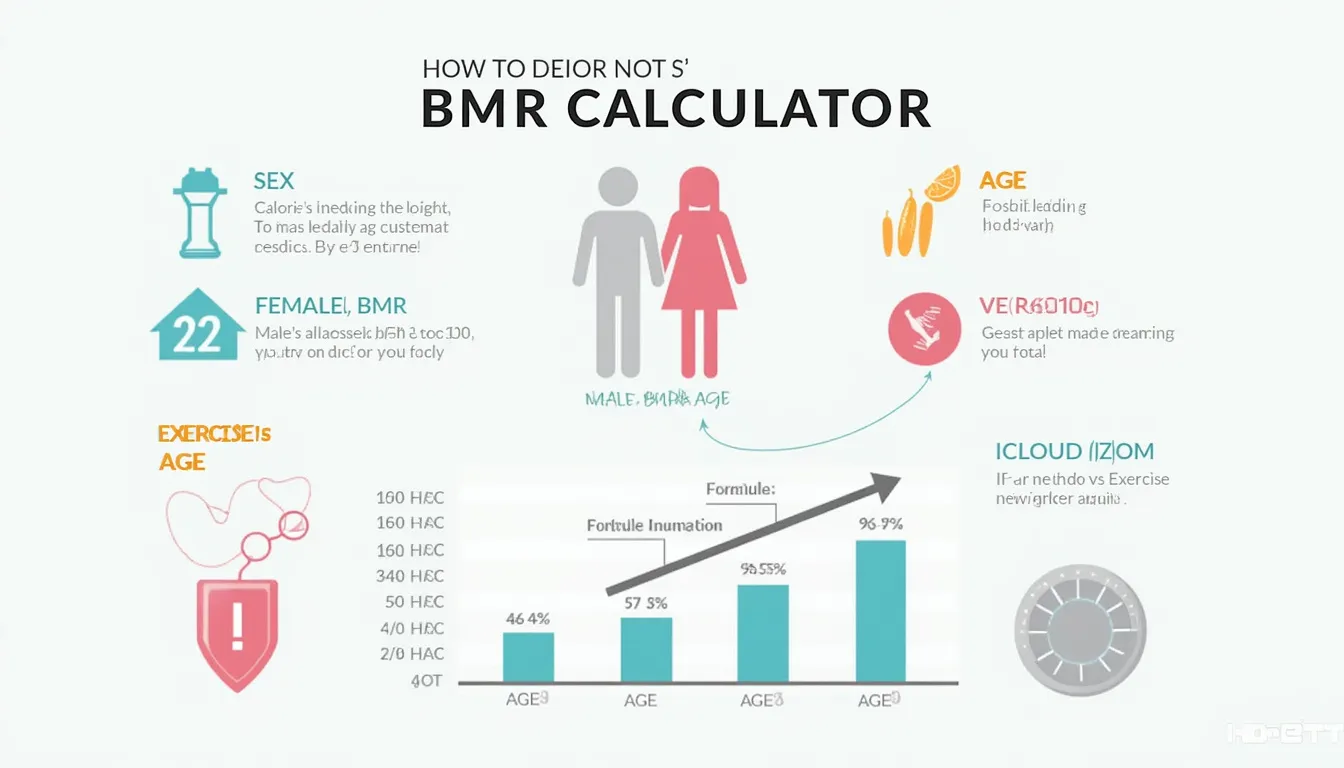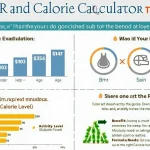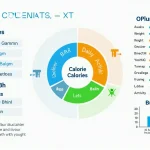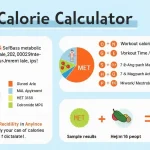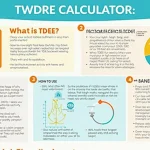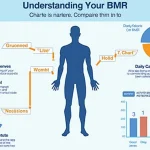BMR Calculator
Is this tool helpful?
How to Use the BMR Calculator Effectively
Our BMR Calculator is designed to help you estimate your daily calorie needs accurately. Follow these easy steps to get the most precise results:
- Select Your Biological Sex: Choose either “Male” or “Female” from the dropdown menu. For example, select Female for a 28-year-old woman or Male for a 40-year-old man.
- Enter Your Age: Provide your age in years, ensuring it falls within the valid range of 0 to 120. For instance, enter 32 or 55 years.
- Input Your Height: Enter your height in centimeters. Acceptable values range from 0 to 300 cm. Example inputs could be 172.5 cm or 158 cm.
- Provide Your Weight: Input your weight in kilograms, between 0 and 500 kg. For example, you might enter 68.2 kg or 85 kg.
- Calculate Your BMR: Click the “Calculate BMR” button to instantly receive your Basal Metabolic Rate in calories per day.
- Review Your Result: Your BMR value will be displayed, giving you an estimate of the minimum calories your body needs at rest to maintain essential functions.
Tip: For the best accuracy, use precise measurements and recalculate your BMR periodically as your body composition or age changes.
Understanding the BMR Calculator: Definition, Purpose, and Key Benefits
What is Basal Metabolic Rate (BMR)?
Basal Metabolic Rate (BMR) is the number of calories your body requires to perform vital functions while at complete rest. These functions include breathing, blood circulation, body temperature regulation, and cellular maintenance. Essentially, BMR represents the energy expenditure if you remained inactive all day.
This calculator factors in four critical variables affecting your BMR:
- Biological Sex: Male or Female, influencing muscle mass and metabolism.
- Age: Metabolic rate tends to decrease as age increases.
- Height: Taller individuals generally have higher BMR.
- Weight: Body mass influences caloric needs at rest.
Why Calculate Your BMR?
Knowing your BMR helps you establish a foundation for your health and fitness journey by:
- Personalizing Weight Management: Provides a calorie baseline to plan effective weight loss, gain, or maintenance.
- Optimizing Nutrition Plans: Aligns your calorie intake with your body’s actual needs.
- Supporting Fitness Goals: Helps tailor workout intensity relative to your metabolic fuel requirements.
- Monitoring Health Changes: Tracks metabolism shifts over time as an indicator of health status.
Benefits of Using This BMR Calculator
- Accurate Caloric Estimates: Uses proven formulas to give reliable daily energy needs.
- Ease of Use: Straightforward inputs with clear instructions.
- Fosters Better Health Decisions: Empowers you to be proactive about diet and exercise.
- Regular Tracking: Facilitates ongoing metabolic awareness as body composition changes.
Example Calculations Using the BMR Calculator
This BMR Calculator applies the well-regarded Mifflin-St Jeor equation to provide accurate results. The formulas used are:
For Males:
$$ BMR = 10 \times \text{weight (kg)} + 6.25 \times \text{height (cm)} – 5 \times \text{age (years)} + 5 $$
For Females:
$$ BMR = 10 \times \text{weight (kg)} + 6.25 \times \text{height (cm)} – 5 \times \text{age (years)} – 161 $$
Practical Example 1: Weight Loss Planning for a Female
Consider Julia, a 35-year-old woman who weighs 62 kg and is 168 cm tall.
Using the formula, her BMR calculation is:
$$ 10 \times 62 + 6.25 \times 168 – 5 \times 35 – 161 = 620 + 1050 – 175 – 161 = 1334 \text{ calories/day} $$
Julia can use this baseline to create a calorie deficit for weight loss by consuming fewer calories than her BMR plus activity calories, ensuring safe and effective progress.
Practical Example 2: Muscle Gain for a Male Athlete
John, a 28-year-old man weighing 80 kg and standing 182 cm tall, wants to build muscle mass.
His BMR calculation is:
$$ 10 \times 80 + 6.25 \times 182 – 5 \times 28 + 5 = 800 + 1137.5 – 140 + 5 = 1802.5 \text{ calories/day} $$
By factoring in his high activity level, John can multiply his BMR by an activity factor (e.g., 1.7) to estimate total energy expenditure and add extra calories to fuel muscle growth.
Maximizing the Benefits: Practical Applications and Use Cases
1. Personalized Calorie Goals for Weight Management
Challenge: Many struggle to identify how many calories they should consume daily for specific goals.
Solution: This calculator provides an individualized calorie baseline, essential for crafting weight loss, maintenance, or gain plans that align with your unique metabolic rate.
2. Tailored Fitness and Workout Planning
Challenge: Difficulty coordinating exercise intensity with energy availability.
Solution: Understanding your BMR helps optimize training by matching workout demands with your metabolic capacity to support endurance, strength, or recovery.
3. Metabolic Health Monitoring Over Time
Challenge: Monitoring metabolism changes without medical tests.
Solution: Use this BMR Calculator to track fluctuations that may signal health changes, enabling early awareness and proactive intervention.
4. Nutritional Planning for Special Populations
Challenge: Meeting energy needs for groups like seniors, pregnant women, or athletes.
Solution: Provides a starting point for understanding baseline requirements, which can be customized with specialist advice for optimal health outcomes.
Conclusion: Empower Your Wellness Journey with Accurate BMR Insights
The Basal Metabolic Rate Calculator is an invaluable tool that grants you clear insight into your body’s resting energy needs. Integrating this knowledge empowers you to make informed choices in nutrition, exercise, and overall lifestyle.
- Accurately targets daily calorie requirements to support specific health and fitness goals.
- Facilitates personalized meal planning that corresponds to your metabolic demands.
- Guides workout structure and intensity tailored to your body’s base energy expenditure.
- Supports continuous health monitoring through regular recalculations to reflect changes in body or lifestyle.
Remember, BMR is one crucial component of a holistic health strategy. For optimal results, combine these insights with balanced nutrition, regular physical activity, and healthy living habits.
Take control of your health today—calculate your BMR regularly and unlock the full potential of your metabolism.
Important Disclaimer
The calculations, results, and content provided by our tools are not guaranteed to be accurate, complete, or reliable. Users are responsible for verifying and interpreting the results. Our content and tools may contain errors, biases, or inconsistencies. Do not enter personal data, sensitive information, or personally identifiable information in our web forms or tools. Such data entry violates our terms of service and may result in unauthorized disclosure to third parties. We reserve the right to save inputs and outputs from our tools for the purposes of error debugging, bias identification, and performance improvement. External companies providing AI models used in our tools may also save and process data in accordance with their own policies. By using our tools, you consent to this data collection and processing. We reserve the right to limit the usage of our tools based on current usability factors.
